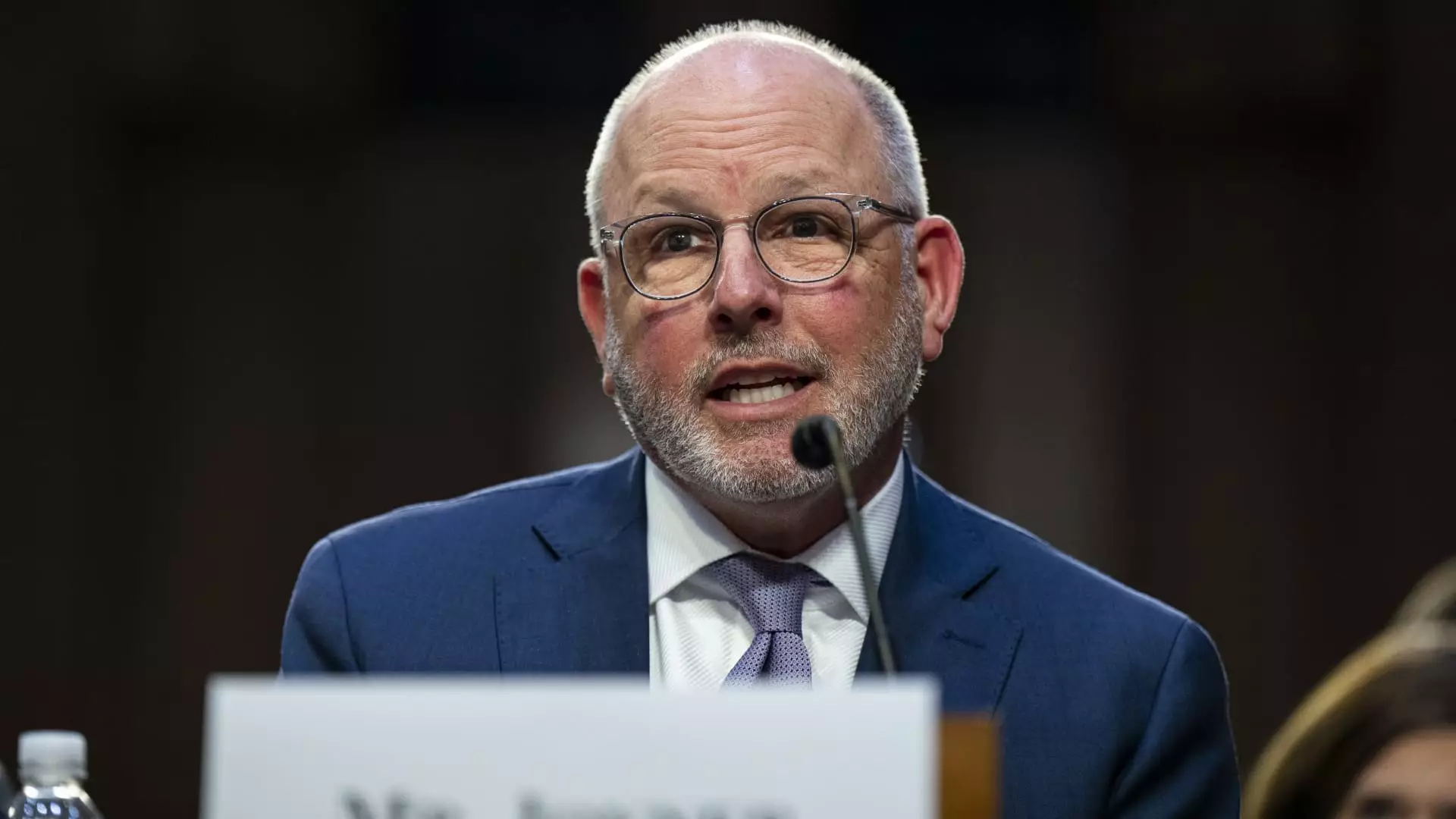CVS Health has made a significant leadership change as David Joyner steps up as the new CEO, succeeding Karen Lynch. This transition comes during a turbulent time for the company, which has seen its stock plummet nearly 20% this year. The announcement of Joyner’s appointment, effective Thursday before the public disclosure on Friday, has stirred both hope and skepticism among investors grappling with the company’s deteriorating stock performance. A day after the announcement, CVS shares fell further, dipping approximately 11% in premarket trading.
The company is currently in the throes of multiple financial challenges, especially as increased medical costs and economic pressures weigh heavily on its insurance unit, Aetna. The retail pharmacy sector is not faring any better, experiencing sluggish consumer spending and difficulties in reimbursement for prescription drugs. Highlighting these troubles, CVS has reduced its full-year profit guidance for the third quarter in a row while announcing an ambitious cost-cutting goal of $2 billion over the next few years.
In the recent financial outlook release, CVS forecasted adjusted earnings of between $1.05 to $1.10 per share for the upcoming third quarter, factoring in expectations of elevated medical costs. The company cautioned that these projections might not align with prior guidance shared during the second quarter earnings call, indicating deeper issues within the company. With earnings reports set to be published on November 6, stakeholders are bracing for potentially grim details further underscoring CVS’s financial struggles.
The reports come during a period when CVS is under increasing pressure from significant shareholders like Glenview Capital, urging substantial changes in corporate strategy. Meanwhile, the board has engaged strategic advisors to consider various options, including a potential split of the insurance and retail divisions. However, a spokesperson confirmed that CVS plans to retain its current structure, which may produce a more focused approach in addressing ongoing financial difficulties.
David Joyner returns to CVS with a wealth of experience. Before his latest appointment, he was president of Caremark, the pharmacy benefits manager that CVS operates. His previous tenure at CVS prior to retirement in 2019 included various executive roles, providing him a comprehensive perspective on the company’s operations. Joyner believes his familiarity with the integrated business model of CVS uniquely positions him to confront the challenges faced by the company and improve operational efficiencies.
Expressing his commitment, Joyner stated, “I came back to CVS Health in 2023 because I believed I could give more to the company.” His insights into navigating the complexities of the pharmacy benefits landscape will be essential, especially considering the scrutiny faced by Caremark and other PBMs from regulators and lawmakers. The escalating tensions surrounding the pricing practices of PBMs add another layer of complexity to Joyner’s role as CEO.
As the new head of CVS, Joyner faces a challenging environment, not least due to the increased regulatory scrutiny from the Biden administration. The Federal Trade Commission has recently filed a suit against Caremark, arguing that its practices contribute to rising insulin costs for consumers. This regulatory landscape poses both challenges and opportunities for CVS as it navigates potential changes in the operational environment that could affect its bottom line.
Moreover, Joyner will need to address the heightened medical expenses associated with Medicare Advantage plans—privately-run health insurance options contracted by Medicare—which have surged due to delayed medical procedures from the COVID-19 pandemic. Analysts expect CVS to strive for a 100 to 200 basis points improvement in its Medicare Advantage margin next year, a goal that will require significant managerial focus and strategic agility.
As CVS Health approaches its third-quarter earnings, heightened medical costs continue to loom large over the company’s insurance unit, with expectations of a medical benefit ratio around 95.2%. This marks a significant rise from the previous year’s 85.7%, indicating potential profitability concerns. As Joyner leads CVS through a landscape filled with challenges—from internal operations to external regulatory hurdles—the future of CVS Health will depend heavily on its ability to adapt swiftly and effectively to these obstacles.
With its stock performance on shaky ground and intense scrutiny from stakeholders, Joyner’s leadership will be pivotal in steering CVS Health back to profitability while reevaluating opportunities for growth. The road ahead is fraught with obstacles, but it also presents a unique opportunity for rejuvenation as the company seeks to redefine its strategy in an evolving healthcare landscape.

